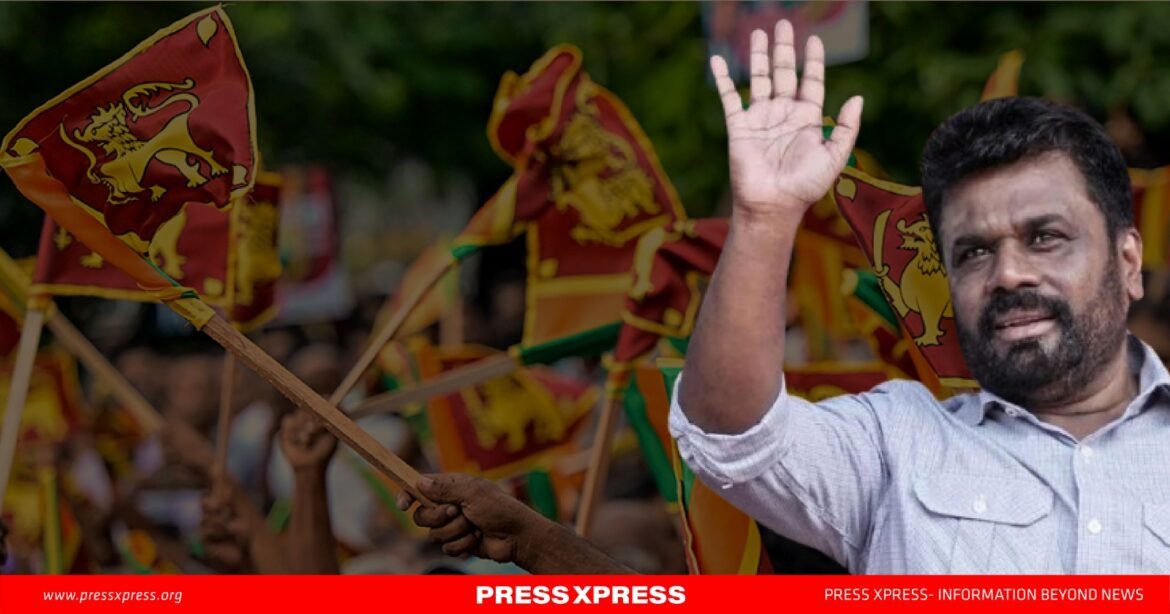Sri Lanka’s newly elected leftist government, led by President Anura Kumara Dissanayake, has secured a decisive two-thirds parliamentary majority, raising expectations for sweeping reforms and reconciliation in a country long divided by ethnic strife and economic turmoil.
The sweeping victory of Sri Lanka’s leftist National People’s Power (NPP) party in the parliamentary elections has sent shockwaves through the island nation’s fractured political landscape. Securing a decisive two-thirds majority, the NPP, led by President Anura Kumara Dissanayake, has claimed an electoral mandate unseen since the adoption of proportional representation in 1977. But as the euphoria subsides, the challenges of governance, reconciliation, and economic revival loom large.
A Historic Mandate
In a political environment marked by decades of ethnic divisions and coalition compromises, the NPP’s landslide victory signifies a rare moment of political consolidation. The party secured 159 out of 225 seats, dwarfing the 40 seats won by the main opposition, Samagi Jana Balawegaya (SJB), and leaving the once-dominant Sri Lanka Podujana Peramuna (SLPP) with a mere three seats. This victory gives the NPP the ability to pass legislation without relying on coalition partners—a stark departure from the horse-trading that has often paralyzed policymaking.
Political analyst Aruna Kulatunga describes this as a pivotal moment for Sri Lanka’s democracy. “This election has created a unique opportunity to bridge the racial and ideological divides that have historically plagued governance,” he notes. “But this unity also comes with enormous expectations that can either reshape the country’s trajectory or deepen disillusionment.”

A Vote for Change?
The electorate’s appetite for change was evident across the country, including in regions long alienated by central governance. In the northern and eastern provinces, predominantly populated by Tamils and Muslims, the NPP broke through traditional voting patterns. Many in these regions expressed frustration with local Tamil leaders, who they felt had failed to deliver tangible benefits since the end of the civil war in 2009.
Ahilan Kadirgamar, a sociology lecturer at the University of Jaffna, points out that this shift signals both hope and urgency. “The Tamil community’s support for the NPP reflects a yearning for solutions to long-standing grievances, from military-occupied land to systemic discrimination,” he says. “Meeting these demands will be a litmus test for the government.”
The party’s inclusive messaging and promises to address minority concerns resonated with voters like Abdul Rahuman Seyyadu Sulaiman, a Muslim activist who has long fought for justice. “We need a government that listens to us,” he said, recalling unaddressed injustices under previous administrations.

Economic Hurdles Continue
The economic crisis that catalyzed the NPP’s rise remains a formidable challenge. The collapse of the economy under the Rajapaksa regime brought Sri Lanka to the brink of default, triggering widespread protests in 2022. Although former President Ranil Wickremesinghe stabilized the economy with an IMF bailout, the accompanying austerity measures, including tax hikes and reduced social spending, deepened public suffering.
Daily wage earners like Vasantha Raj, who cast their votes for the NPP without knowing individual candidates, embody the collective desperation for a fresh approach. “We’ve seen the same faces for decades with no change. This time, we’ll see if these new leaders can deliver,” he said.
While the NPP has vowed to prioritize anti-corruption measures and economic revitalization, the path forward will be arduous. Food prices and medicine costs remain prohibitively high, burdening families like that of MF Sareena, who struggles to care for her elderly mother. “We need relief, and we need it fast,” Sareena implored.
Governance and Reconciliation
With a parliamentary supermajority, the NPP has the power to amend the constitution, a promise central to its campaign. The party aims to initiate a referendum for constitutional reforms, which it claims will enhance accountability and decentralize power. However, skepticism persists about whether such sweeping changes can be implemented without deepening existing divides.
A more immediate concern is addressing grievances of the Tamil and Muslim minorities. These communities have long been marginalized, both during the civil war and in its aftermath, often facing land confiscation and systemic exclusion. Delivering justice in these regions, as Kadirgamar observes, will require bold and politically risky decisions. “Returning military-occupied lands and ensuring equal rights will test the government’s resolve against entrenched resistance,” he warns.
A Delicate Balancing Act!
The NPP leadership has acknowledged the enormity of the task ahead. Nihal Abeysinghe, the party’s secretary, reassured citizens that the newfound power would not be misused. “We understand the weight of the trust placed in us, and we will not repeat the mistakes of our predecessors,” he said in a post-election press conference.
Yet, political stability alone will not suffice. The NPP must navigate a minefield of economic pressures, geopolitical balancing acts, and deeply ingrained societal divides. Dissanayake’s Marxist-leaning roots, which have energized his base, could also alienate international investors—a delicate dilemma for a country reliant on foreign aid and trade.
The Road Ahead
As Sri Lanka stands at this crossroads, its people’s hopes for change are tempered by the realities of governance. The NPP’s resounding mandate offers an unprecedented opportunity to reshape the nation’s future, but the stakes are equally high. Success will require not just sweeping reforms but also a commitment to transparency, inclusivity, and sustained dialogue across societal fractures.
The words of Samanmalee Gunasinghe, an NPP member who won a seat in Colombo, encapsulate the mood of the moment: “The people have chosen change. Now, it is up to us to ensure that choice was not in vain.”
Lastly, Sri Lanka’s new government may have the numbers, but whether it has the vision and resolve to deliver is a question that will shape its legacy.


